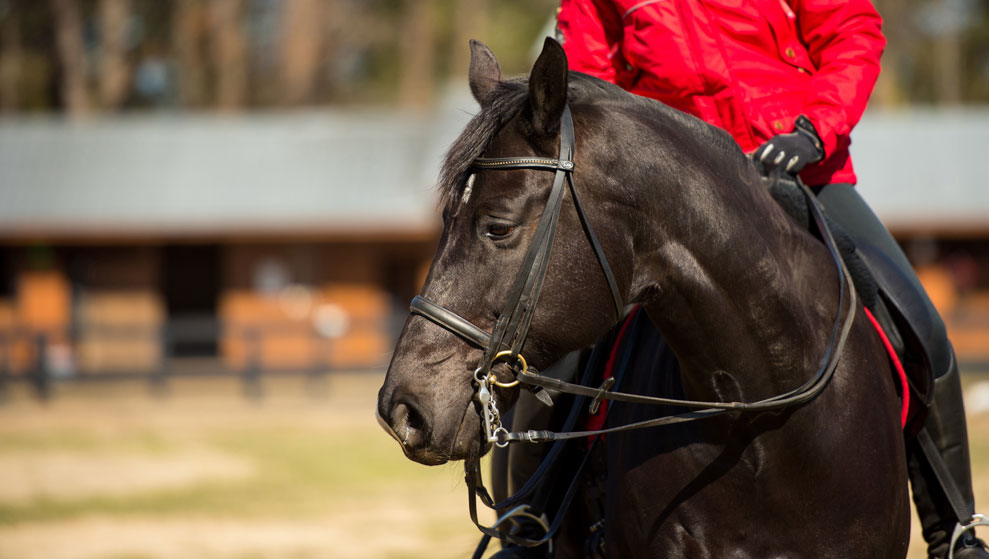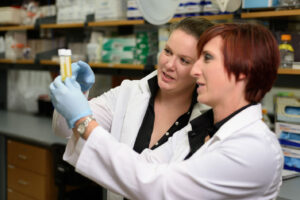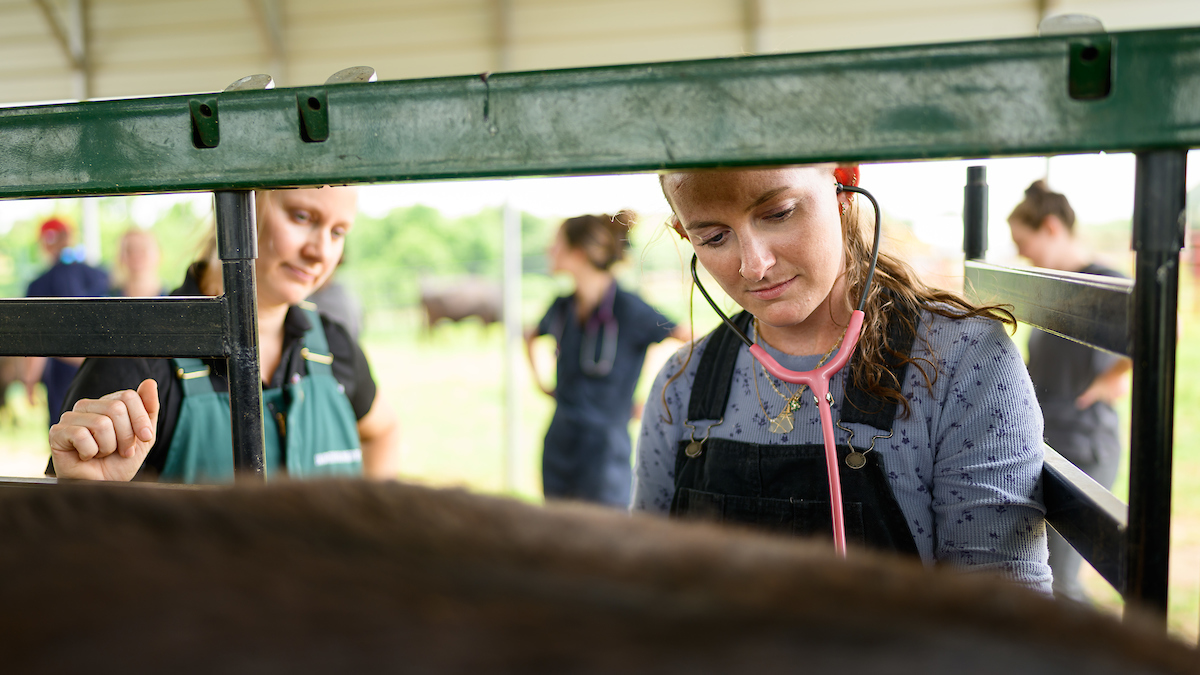Groundbreaking NC State Equine Tendon Injury Research Receives Funding

New research from the NC State College of Veterinary Medicine to improve stem cell treatment for equine tendon injuries is one of a small handful of projects across the country receiving funding this year from the Grayson-Jockey Club Research Foundation.
The two-year project, led by Lauren Schnabel, associate professor of equine orthopedic surgery, and Kristen Messenger, assistant professor of pharmacology, will examine tendon inflammation after injury and the effect the inflammatory environment has on mesenchymal stem cells (MSCs).
Mesenchymal stem cell therapy has shown promise in improving the quality of tendon repair in horses and other species and has reduced re-injury rates of naturally occurring superficial digital flexor tendon equine injuries. The exact mechanisms of MSC-induced tendon repair, however, remain unknown.
The research is just one of 17 new projects funded this year by the nonprofit foundation, which has provided nearly $30 million for national and international equine research projects since 1983.
“I am extremely grateful for the continued support of my laboratory from the Grayson-Jockey Club Research Foundation,” said Schnabel. “We recently completed a large study on infectious arthritis with their support that has changed the way we treat these cases in the hospital and has substantially improved outcomes, both by resolving the infection and preventing further cartilage damage.
“In this newly funded study, we will be able to optimize the way that we use stem cells on our patients to stimulate the best healing possible.”
Digital flexor tendon injuries, which impact lower limbs, occur frequently in athletic horses and are particularly debilitating. Re-injury rates can be as high as 70% and full rehabilitation from tendon injury often takes a year.
MSCs are often derived from bone marrow and tissue. New evidence suggests they enhance the recruitment of blood vessels and nearby cells that play vital roles in healing of tendon injuries. MSC treatment is the only approach that has been proven to substantially reduce tendon re-injury rates.

Schnabel and her research team believe the expression of inflammatory cytokines, types of cell-signaling proteins, changes over time after tendon injury and that the proteins present immediately after injury may be able to enhance MSCs’ ability to heal tendons.
The research will characterize the tendon cytokine environment and test if the proteins can be used to stimulate MSCs to improve tendon healing compared to unstimulated MSCs.
“We are very excited to start this project and figure out how to maximize the benefits of MSC therapy for our patients,” said Schnabel. “Our hope is that we can return these horses to their pre-injury level of competition as quickly as possible and further reduce re-injury rates.”
NC State’s equine service is a world leader in equine orthopedic surgery and sports medicine and rehabilitation. Schnabel’s lab conducts pioneering work on stem cell immunology and developing innovative therapies for equine musculoskeletal injuries and disease.
Jessica Gilbertie, a graduate student researcher in Schnabel’s lab, received the Grayson-Jockey Club Research Foundation’s Elaine and Bertram Klein Career Development Award in 2018. The Grayson-Jockey Research Foundation has a long history of supporting equine research at NC State, including projects focusing on reproductive health, orthopedic injuries and colic.
NC State’s Tiffany and Randy Ramsey Equine Sports Medicine Program, launched in 2016 following a generous endowment from the Ramseys, offers cutting-edge treatments for performance-related injuries in horses.
~Jordan Bartel/NC State Veterinary Medicine


